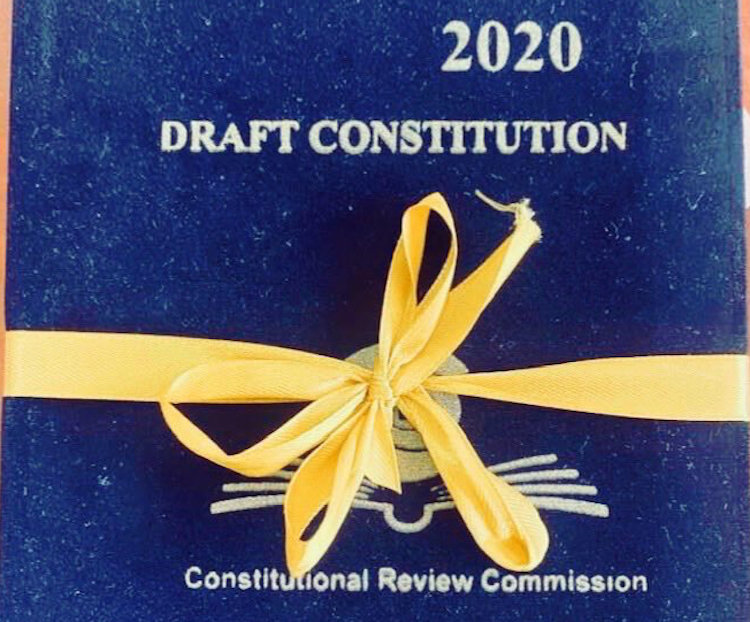Gambiaj.com – (BANJUL, The Gambia) – The Government of The Gambia has officially announced its decision to re-gazette the Draft Constitution, a crucial step toward its presentation before the National Assembly. The Draft Constitution, which was originally presented by the Constitutional Review Commission (CRC) on March 30, 2020, has undergone a thorough review by the government.
The re-gazetting process begins today, with the Draft set to be available for public scrutiny over a period of three months. Following this period, it will be gazetted for an additional ten days, as mandated by the 1997 Constitution. This step marks a significant milestone in The Gambia’s ongoing efforts to solidify democratic principles and uphold human rights.
The Draft Constitution, as it stands, encapsulates the core values and ethos of the Gambian nation. It reaffirms The Gambia’s status as a sovereign, independent republic grounded in multi-party democracy, with periodic elections based on universal adult suffrage. Importantly, the Draft introduces term limits for the presidency, a first in the nation’s constitutional history, and establishes mechanisms for justice and accountability in cases of serious crimes.
The Government of The Gambia has emphasized that the Draft Constitution reflects the collective will of the people, ensuring that fundamental human rights and freedoms are recognized and protected for all individuals, whether Gambian or non-Gambian. This move is seen as a pivotal step in the country’s transitional justice process, which seeks to address past human rights abuses and prevent their recurrence.
Copies of the Draft Constitution are now available to the public at the Gambia Printing and Publishing Corporation and can also be accessed online through the Ministry of Information’s website. The government has assured the public that they will be kept informed of the Draft’s progress as it moves through the necessary legislative stages.
The re-gazetting of the Draft Constitution comes at a time when The Gambia is navigating a complex transitional period, following decades of autocratic rule under former President Yahya Jammeh. The introduction of term limits and accountability mechanisms are seen as critical components in ensuring that the country does not revert to the practices of the past.
As The Gambia moves forward with its constitutional reform process, all eyes will be on the National Assembly as it deliberates on the Draft Constitution, a document that holds the promise of further strengthening the country’s democratic institutions and safeguarding the rights of its citizens.










